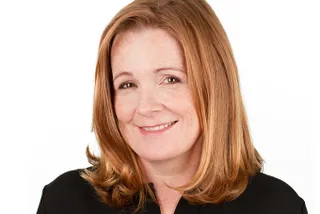
'People Don't Have An Attachment to the Truth' | A Q&A with Broadcaster Kirsty Lang
From Europe news reporter to an education and the arts presenter, Kirsty Lang is an expert in weaving narratives. We spoke to her about her career to date, what it was like being a reporter at the time of Princess Diana's death and how modern journalism seems to have lost its attachment to the truth.
Can you tell us a bit about your career journey to date?
I started as a news journalist with the BBC in the mid-1980s, I worked in Northern Ireland and Eastern Europe during the revolutions and the war of Yugoslavia, it was a tumultuous time. In the 90s I moved to Paris where I worked for the Sunday Times, there I covered France and Europe. Following that, in the early noughties, I moved back to London to become the Channel 4 News and Europe Editor, I did occasional news presenting too. Then I returned to BBC World from around 2002-2013 and since then I’ve been presenting the flagship arts and culture show on Radio 4 – Front Row. Following this post, I’ve become very involved in the arts, I’m a trustee of the British Council, a chair of the contemporary arts centre in Newcastle Gateshead, and I’ve chaired the Orange Prize, to give a few examples. I know I moved from hard journalism to arts and culture, and often people will question me on this change, but I’ve always said my career has always been about telling stories. It doesn’t matter if you’re telling one about leaving Europe or a piece of art being made, it is all the same at the heart. It is all about how you interpret the world around you, that’s what politicians, artists and journalists are all trying to do, they’re just make sense of the world we live in.
What are some of the biggest news stories you’ve had to break?
There are two big stories that I’ve covered that stick out for me in my career. Firstly, the fall of communism in Eastern Europe. I was the News Reporter for BBC in Budapest, I was brought up thinking the Cold War would never end and then it all crumbled in a very unexpected way. Although, this was very short-lived as within two years I was covering the war in Yugoslavia, so that was a huge story.
The second would be the death of Princess Diana. I was based in Paris working for the Sunday Times when the princess was killed. I felt like I was in the middle of the tornado – people wanted to interview me just because of people I had interviewed on the ground. These doctors and paramedics that became needless celebrities in their own right because of work that they had done on the ground. One of the things we journalists did at the time was to retrace the steps of the driver to find out how much he’d drunk that night, it was a lengthy process. We also had to fight off the conspiracy theorists – my phone would ring non-stop with theories, ten years later I would still get calls. The whole situation was very macabre and very overwhelming.
It is now sometimes said that now anyone with a phone in the right place at the right time can be a journalist – what do you think about this theory?
It is incredibly positive in some ways, certainly for TV journalism, as it makes it more democratic, as you can record something on your phone. But, I was also a graduate trained from BBC, so I had it drilled into me for as long as I can remember that you needed at least two sources for every story. Sadly, I think nowadays people don’t always have quite such an attachment to the truth. This is why journalism has been undermined – untrue facts will be repeated across numerous media outlets.
I’m not sure if the internet has provided us with more choice or more truth, as I find when I’m researching things, I find the same words crop up over and over again, as people take information from any old source rather than checking whether they’re true.
Can you tell us about any hightlights you've had since working on Front Row?
I interviewed Greta Gerwig who is an American actress, screenwriter and director, she has been nominated for an Oscar for her film Ladybird. It was interesting teasing out of her how she contracted that story form her own upbringing to making this relevant to everyone. It was also interesting to see how she’s developed from being a young woman to an actress, to having the courage to direct.
I also interviewed Thomas Stoppard, it was so interesting to hear how he went from being a young boy, a Jewish refugee, to bringing this experience into his plays.
What’s next for you?
I’m developing a talk on narrative and storytelling, as I’ve found that it doesn’t matter what sector you work in, it is all about telling stories as that’s how we make sense of the world around us. I think that very often we forget that when we communicate and we rely too heavily on acronyms, corporate speak and official policy – it obfuscates the story, so we must re-learn the skill to connect to people.
For further information call us on or email info@speakerscorner.co.uk .
Newsletter Sign Up
If you liked this article then why not sign up to our newsletters? We promise to send interesting and useful interviews, tips and blogs, plus free event invites too.
Have an enquiry?
Send us a message online and we'll respond within the hour during business hours. Alternatively, please call us our friendly team of experts on +44 (0) 20 7607 7070.
